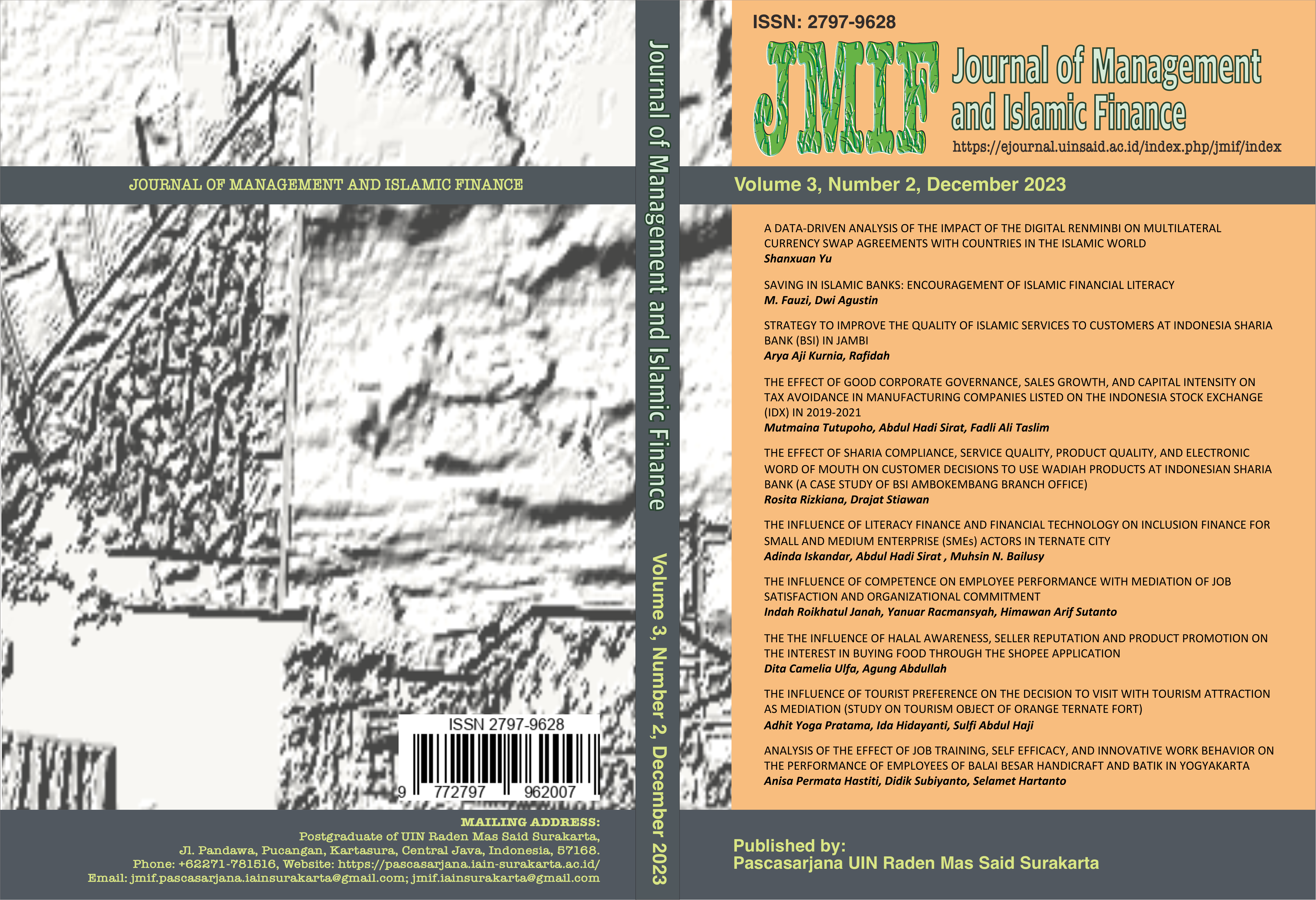THE EFFECT OF SHARIA COMPLIANCE, SERVICE QUALITY, PRODUCT QUALITY, AND ELECTRONIC WORD OF MOUTH ON CUSTOMER DECISIONS TO USE WADIAH PRODUCTS AT INDONESIAN SHARIA BANK (A CASE STUDY OF BSI AMBOKEMBANG BRANCH OFFICE)
DOI:
https://doi.org/10.22515/jmif.v3i2.7339Keywords:
Sharia Compliance, Service Quality, Product Quality, E-WOM, Customer DecisionsAbstract
The aim of the research is to determine the effect of sharia compliance, service quality, product quality, and electronic word of mouth on customers' decisions to use Wadiah at BSI Ambombang products. This research was field research with a descriptive quantitative approach. Data were obtained by distributing questionnaires to customers who use Wadiah products. The sampling technique was purposive sampling, which obtained 97 respondents. The data analysis techniques used instrument tests, classical assumption tests, multiple linear regression analysis, hypothesis testing, and coefficient of determination tests. The results show that the service quality, product quality, electronic word of mouth variable have a positive and significant influence on the customer's decision and the sharia compliance variable has a negative and significant effect on customers' decisions.
Downloads
Downloads
Published
Issue
Section
Citation Check
License
Copyright (c) 2023 Rosita Rizkiana, Drajat Stiawan

This work is licensed under a Creative Commons Attribution-ShareAlike 4.0 International License.
Authors who publish with this journal agree to the following terms:
- Authors retain copyright and grant the journal right of first publication with the work simultaneously licensed under a Creative Commons Attribution License that allows others to share the work with an acknowledgement of the work's authorship and initial publication in this journal.
- Authors are able to enter into separate, additional contractual arrangements for the non-exclusive distribution of the journal's published version of the work (e.g., post it to an institutional repository or publish it in a book), with an acknowledgement of its initial publication in this journal.
- Authors are permitted and encouraged to post their work online (e.g., in institutional repositories or on their website) prior to and during the submission process, as it can lead to productive exchanges, as well as earlier and greater citation of published work.






